Dreams are one of the most fascinating and mystifying aspects of sleep. Since Sigmund Freud helped draw attention to the potential importance of dreams in the late 19th century, considerable research has worked to unravel both the neuroscience and psychology of dreams.
Despite this advancing scientific knowledge, there is much that remains unknown about both sleep and dreams. Even the most fundamental question — why do we dream at all? — is still subject to significant debate.
While everyone dreams, the content of those dreams and their effect on sleep can vary dramatically from person to person. Even though there’s no simple explanation for the meaning and purpose of dreams, it’s helpful to understand the basics of dreams, the potential impact of nightmares, and steps that you can take to sleep better with sweet dreams.
What Are Dreams?

What Are Dreams?
Dreams are images, thoughts, or feelings that occur during sleep. Visual imagery is the most common , but dreams can involve all of the senses. Some people dream in color while others dream in black and white, and people who are blind tend to have more dream components related to sound, taste, and smell.
Studies have revealed diverse types of dream content, but some typical characteristics of dreaming include:
- It has a first-person perspective.
- It is involuntary.
- The content may be illogical or even incoherent.
- The content includes other people who interact with the dreamer and one another.
- It provokes strong emotions.
- Elements of waking life are incorporated into content.
Although these features are not universal, they are found at least to some extent in most normal dreams.
why Do we Dream ?

why Do we Dream ?
There are several theories about why we dream. Are dreams merely part of the sleep cycle, or do they serve some other purpose?
Possible explanations include:
- representing unconscious desires and wishes
- interpreting random signals from the brain and body during sleep
- consolidating and processing information gathered during the day
- working as a form of psychotherapy
From evidence and new research methodologies, researchers have speculated that dreaming serves the following functions:
- offline memory reprocessing, in which the brain consolidates learning and memory tasks and waking consciousness
- preparing for possible future threats
- cognitive simulation of real life experiences, as dreaming is a subsystem of the waking default network, the part of the mind active during daydreaming
- helping develop cognitive capabilities
- reflecting unconscious mental function in a psychoanalytic way
- a unique state of consciousness that incorporates experience of the present, processing of the past, and preparation for the future
- a psychological space where overwhelming, contradictory, or highly complex notions can be brought together by the dreaming ego, notions that would be unsettling while awake, serving the need for psychological balance and equilibrium
Much that remains unknown about dreams. They are by nature difficult to study in a laboratory, but technology and new research techniques may help improve our understanding of dreams.
When Do We Dream?

When Do We Dream?
On average, most people dream for around two hours per night. Dreaming can during any stage of sleep, but dreams are the most prolific and intense during the rapid eye movement (REM) stage.
During the REM sleep stage, brain activity ramps up considerably compared to the non-REM stages, which helps explain the distinct types of dreaming, during these stages.
Dreams during REM sleep are typically more vivid, fantastical, and/or bizarre even though they may involve elements of waking life. By contrast, non-REM dreams tend to involve more coherent content that involves thoughts or memories grounded to a specific time and place.
Stages of sleep

Stages of sleep
There are five phases of sleep in a sleep cycle:
Stage 1: Light sleep, slow eye movement, and reduced muscle activity. This stage forms 4 to 5 percent of total sleep.
Stage 2: Eye movement stops and brain waves become slower, with occasional bursts of rapid waves called sleep spindles. This stage forms 45 to 55 percent of total sleep.
Stage 3: Extremely slow brain waves called delta waves begin to appear, interspersed with smaller, faster waves. This accounts for 4 to 6 percent of total sleep.
Stage 4: The brain produces delta waves almost exclusively. It is difficult to wake someone during stages 3 and 4, which together are called “deep sleep.” There is no eye movement or muscle activity. People awakened while in deep sleep do not adjust immediately and often feel disoriented for several minutes after waking up. This forms 12 to 15 percent of total sleep.
Stage 5: This stage is known as rapid eye movement (REM). Breathing becomes more rapid, irregular, and shallow, eyes jerk rapidly in various directions, and limb muscles become temporarily paralyzed. Heart rate increases, blood pressure rises, and males develop penile erections. When people awaken during REM sleep, they often describe bizarre and illogical tales. These are dreams. This stage accounts for 20 to 25 percent of total sleep time.
REM sleep is not distributed evenly through the night. The majority of REM sleep happens during the second half of a normal sleep period, which means that dreaming tends to be concentrated in the hours before waking up.
How Do Scientists Study Dreams?
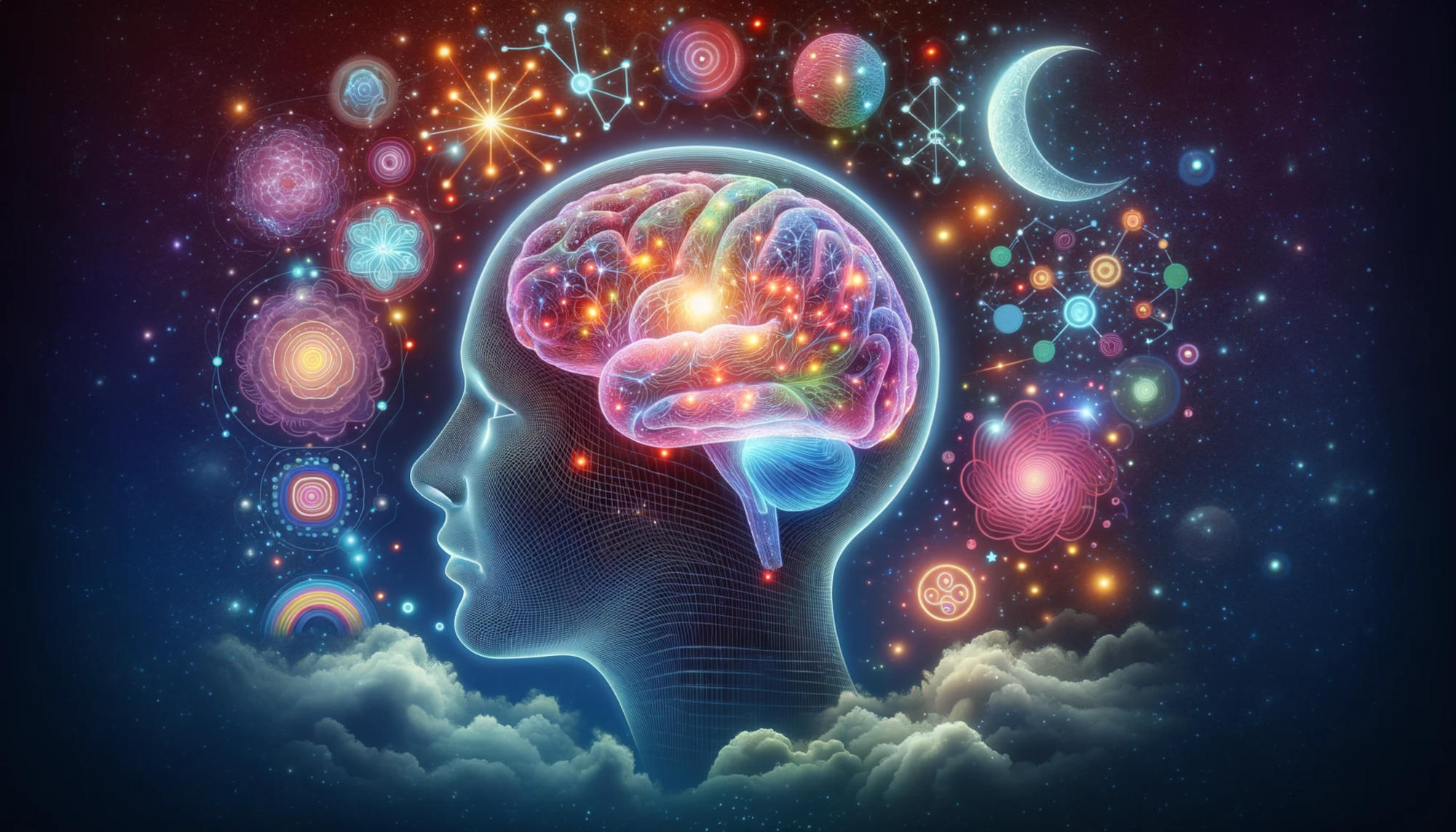
How Do Scientists Study Dreams?
The question of why we dream has fascinated philosophers and scientists for thousands of years. Traditionally, dream content is measured by the subjective recollections of the dreamer upon waking. However, observation is also accomplished through objective evaluation in a lab.
In one study, researchers even created a rudimentary dream content map that was able to track what people dreamed about in real time using magnetic resonance imaging (MRI) patterns. The map was then backed up by the dreamers’ reports upon waking.
The role of dreams
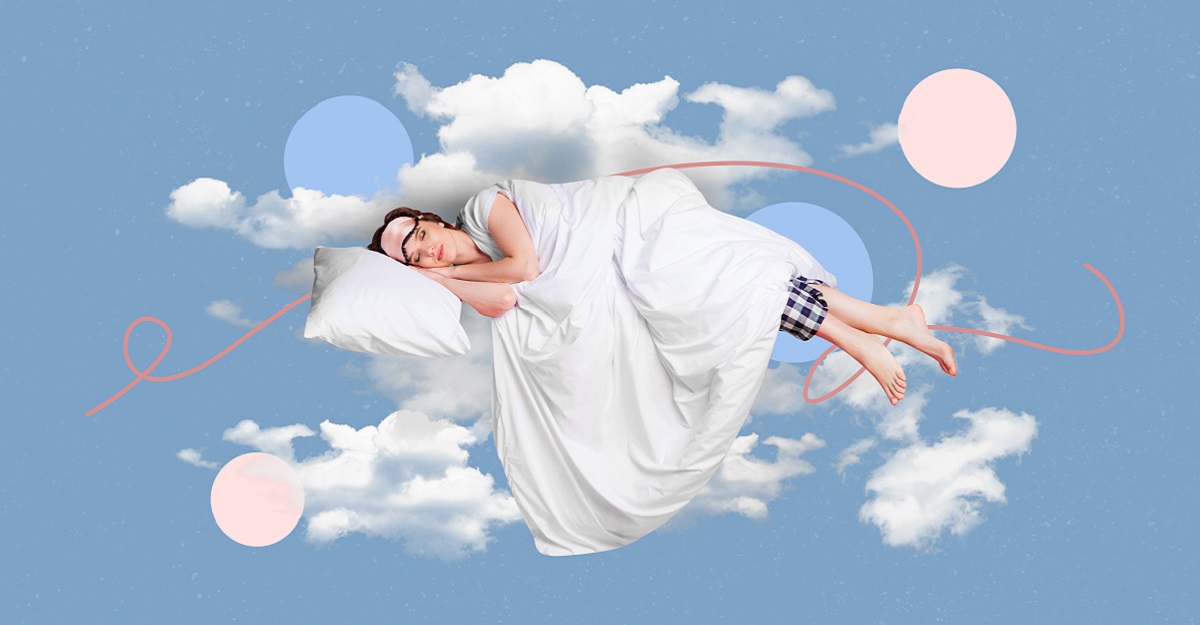
The role of dreams
Researchers still don’t entirely agree on the purpose of dreams. There are, however, some widely held beliefs and theories.
Dreams as therapists
Your dreams may be ways of confronting emotional dramas in your life. And because your brain is operating at a much more emotional level than when you’re awake, your brain may make connections regarding your feelings that your conscious self wouldn’t make.
Dreams as fight-or-flight training
One of the areas of the brain that’s most active during dreaming is the amygdala. The amygdala is the part of the brain associated with the survival instinct and the fight-or-flight response.
One theory suggests that because the amygdala is more active during sleep than in your waking life, it may be the brain’s way of getting you ready to deal with a threat.
Fortunately, the brainstem sends out nerve signals during REM sleep that relax your muscles. That way you don’t try to run or punch in your sleep.
Dreams as your muse
One theory for why we dream is that it helps facilitate our creative tendencies. Artists of all kinds credit dreams with inspiring some of their most creative work. You may have awakened at times in your life with a great idea for a movie or a song, too.
Without the logic filter you might normally use in your waking life that can restrict your creative flow, your thoughts and ideas have no restrictions when you’re sleeping.
Dreams as memory aides
One widely held theory about the purpose of dreams is that they help you store important memories and things you’ve learned, get rid of unimportant memories, and sort through complicated thoughts and feelings.
Research shows that sleep helps store memories. If you learn new information and sleep on it, you’ll be able to recall it better than if asked to remember that information without the benefit of sleep.
How dreams affect memory storage and recall isn’t clearly understood yet. But dreams may help the brain more efficiently store important information while blocking out stimuli that could interfere with memory and learning.
Why do we have nightmares?
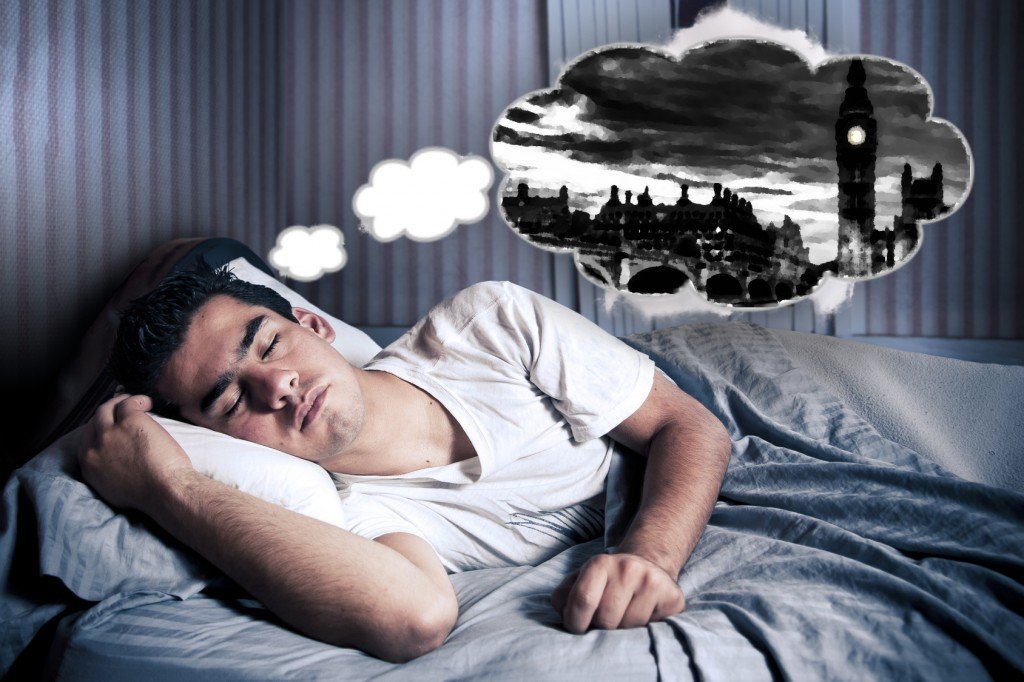
Why do we have nightmares?
Dreams that help you deal productively with emotions, memories, and other information may seem very helpful. The occasional nightmare is considered a dream that’s simply more frightening or upsetting. Nightmares tend to be caused by stress, anxiety, or sometimes as a reaction to certain medications.
However, if you have nightmares frequently, you could have a sleeping disorder. Regularly occurring scary dreams can be labeled a sleeping disorder if the nightmares:
- cause you to be anxious about going to sleep
- lead to frequent disruptions of your sleep
- bring about other sleeping or psychological problems
Many people experience occasional nightmares throughout their lives. However, the American Sleep Association estimates only about 5 percent of the population experiences persistent nightmares as a sleeping disorder.
Why Do We Always forget Our Dreams?

Why Do We Always forget Our Dreams?
Forgetting dreams is far from uncommon. Many (if not most) dreams are forgotten, either immediately after waking or later on. Some researchers refer to immediately-forgotten dreams as “white dreams”; some evidence suggests that as many as one-third of awakenings are associated with white dreams, and may be due to the fact that the brain does not encode memories the same way while dreaming as it does while awake.
What does our dream mean?
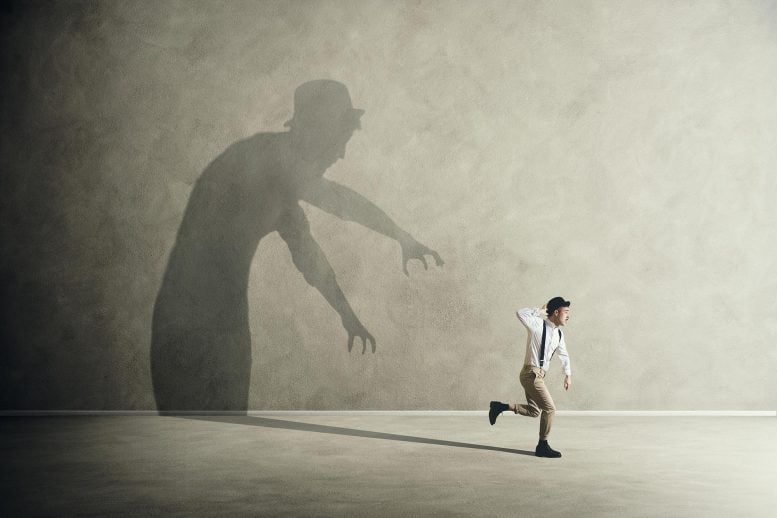
What does our dream mean?
Different cultures throughout history have ascribed meaning and importance to dreams, though there’s little scientific evidence that dreams have particular meanings attached to them, Kuras says. “No one has yet determined with exactitude what dreams or the images in dreams mean. That dreams are significant indicators of one’s subconscious mind is a basic assumption in various cultures, but in different ways.”
Kryger says dreams are “mostly speculation in terms of specific meanings.” He continues that there are two main trains of thought in the scientific community: One is that every part of a dream has a specific meaning, and the other is that dreams are entirely spontaneous and mean nothing.
The first train of thought can be attributed to Sigmund Freud, who is recognized as the first person to assign definitive meanings to dreams — like that dreaming about a king and a queen actually means you’re dreaming about your mother and father, Kryger says.
Although dream psychoanalysis may have only begun in the last century or two, people have studied dreams for far longer: Aristotle wrote about dreams as early as 325 B.C., according to Kryger.
Lauri Quinn Loewenberg, a professional dream analyst, says the problem with arriving at proof across the board “is that dreams and their meanings are so very personal because they are based on the person’s individual life experiences.”
Additionally, neuroscience tends to focus on the function of dreaming (like memory retention) rather than the “comparative analysis between the imagery in dreams and the content of the previous day, which is how I approach dream analysis,” Loewenberg says.
That said, certain dreams do have meanings attached to them, if for no reason other than holding significance for many people. Below, Kryger, Kuras and Loewenberg discuss the potential meanings of common dreams and symbols in dreams.
Why some dreams are common
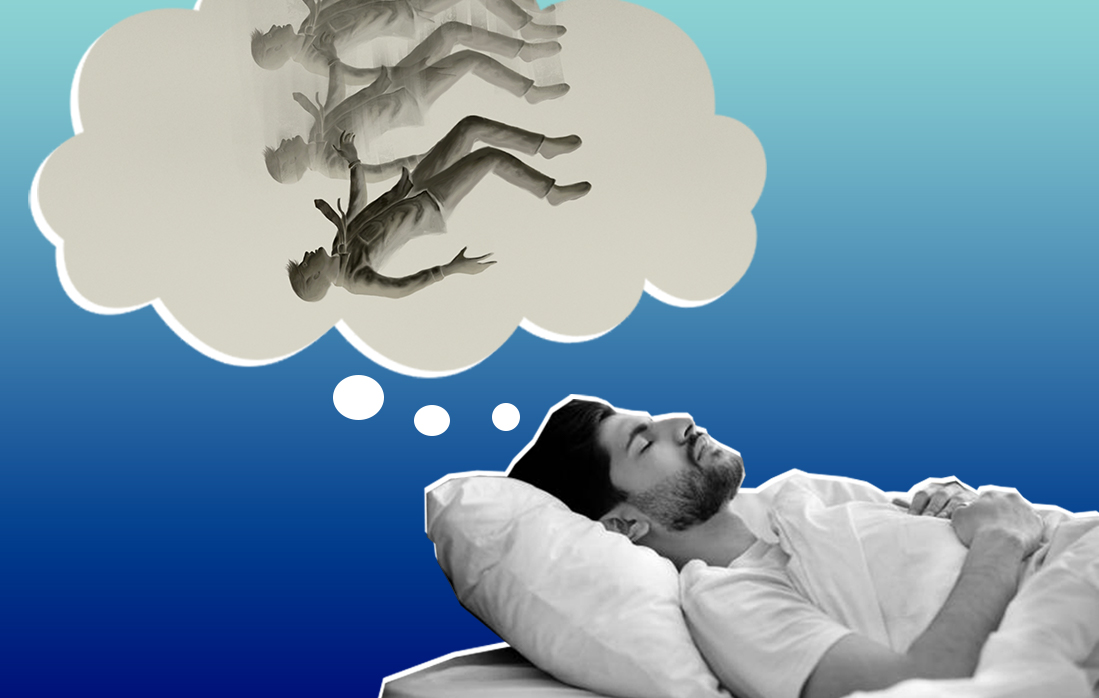
Why some dreams are common
Have you ever dreamt that you were falling and jerked awake? If you’ve ever discussed said dream with other people, there’s a good chance someone else chimed in saying, “I’ve had that dream, too!” Dreaming of falling seems to be pretty common, and it’s something called an archetype, Loewnberg says.
An archetype, by definition, is “a very typical example of a certain person or thing” (Oxford); when applied to dreams, an archetype is something that signifies “patterns of the psyche.”
Other common dreams, which may or may not be archetypes depending on what’s happening in your life at the time you have the dream, include:
- Showing up late for something important
- Being chased by someone or something
- Flying
- Dreams about sexual relations that shouldn’t happen in real life (such as you or your partner engaging in relations with someone else)
- Encountering someone who has died
- Being lost
- Being paralyzed or unable to speak
- Being naked or embarrassed in front of a crowd
Loewenberg says these dreams are so common because they’re connected to common behaviors, actions, thoughts and fears. For example, many (if not most) people worry about arriving late for something important, such as a work presentation or a plane flight. Likewise, many people may worry about their partner having an affair, which can show up in dreams.
Having dreams where you appear naked or embarrassed in front of a crowd is often related to social anxiety, Loewenberg says, or worrying about how others perceive you.
Dreams are not just fleeting shadows in the night but are the deepest details of our psyche, revealing our deepest fears, desires and questions and as we journey through the lands of dreams, we continue to try to understand the deeper meanings and answers to why we dream, a quest that is still as exciting as dreams. Understanding Dreams Self- discovery and emotional exploration. So it is important to keep a dream journal, think about your dreams and think about them.














Leave a comment